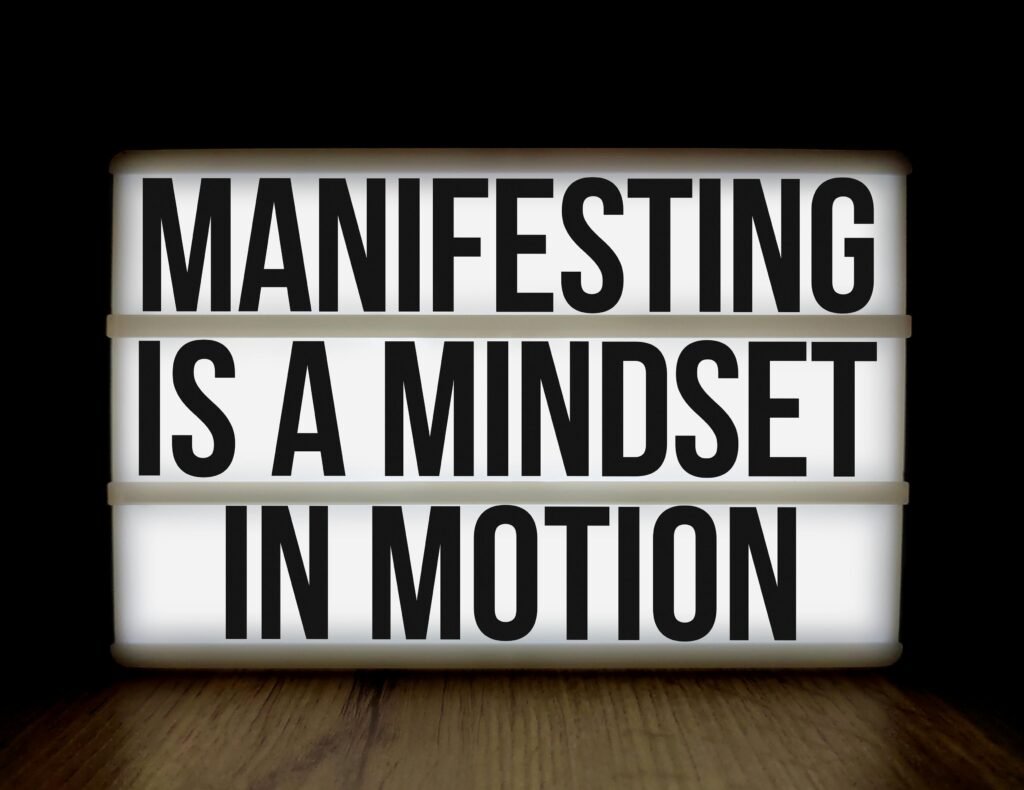
Understanding Self-Discipline
Self-discipline is the ability to push yourself to take action regardless of your emotional state.
It involves managing your behaviors, emotions, and thoughts to achieve long-term goals.
Developing self-discipline can be a game-changer in your journey toward success, personal growth, and self-improvement.
To better understand self-discipline, consider it as a muscle.
Just like any other muscle, it needs regular exercise to grow stronger.
By practicing self-discipline, you build the strength to resist immediate temptations and focus on what truly matters to you.
This mental toughness allows you to stay committed to your objectives, even when faced with challenges.
A key aspect of self-discipline is having a clear understanding of your motivations.
Knowing why you want to achieve a certain goal can make it easier to stay focused.
Take a moment to reflect on what drives you.
Is it a desire for a healthier lifestyle, a better career, or personal fulfillment?
Once you identify your motivations, you can use them as a source of inspiration to keep you on track.
Another important element is the ability to delay gratification.
This means resisting the urge to indulge in short-term pleasures that can derail your progress.
For instance, if you’re working on a project, you might need to say no to social invitations or limit your time on social media.
By prioritizing long-term rewards over immediate satisfaction, you strengthen your self-discipline.
Self-discipline also involves managing your environment.
Surround yourself with people and things that support your goals.
If you aim to improve your fitness, join a community of like-minded individuals or create a home environment that encourages healthy habits.
The right environment can provide the structure and support needed to maintain your discipline.
Lastly, self-discipline is not about being perfect.
It’s about making consistent efforts and learning from setbacks.
When you slip up, don’t be too hard on yourself. Instead, recognize what went wrong, make adjustments, and move forward.
This approach helps you build resilience and stay committed to your journey of self-improvement.
Setting Clear Goals

Setting clear goals is crucial for developing self-discipline and achieving success.
Goals provide direction and a sense of purpose, allowing you to focus your efforts on what truly matters.
To set effective goals, start by being specific about what you want to achieve.
Vague goals like “get fit” or “be successful” can be challenging to pursue because they lack clear endpoints.
Instead, define your goals in concrete terms.
For example, instead of “get fit,” aim to “run a 5K in three months” or “lose 10 pounds in two months.”
This specificity helps you visualize your end goal and creates a tangible target to work towards.
Another key aspect is setting measurable goals.
Measurable goals enable you to track your progress and make necessary adjustments along the way.
If your goal is to improve your skills in a particular area, identify specific milestones to reach.
For instance, if you want to become a better public speaker, set goals like “give one presentation per month” or “attend a weekly public speaking workshop.”
These measurable steps allow you to see your improvement over time and keep you motivated.
It’s also important to set realistic and achievable goals.
While it’s great to aim high, setting goals that are too ambitious can lead to frustration and burnout.
Consider your current situation, resources, and time constraints when setting your goals.
Break larger goals into smaller, manageable tasks.
For example, if your ultimate goal is to write a book, start by setting smaller goals like “write 500 words a day” or “complete one chapter per month.”
Achieving these smaller tasks builds momentum and confidence, making the larger goal feel more attainable.
Lastly, ensure your goals are time-bound.
Having a deadline creates a sense of urgency and helps you stay focused.
Whether it’s a short-term goal to complete in a week or a long-term goal to achieve in a year, setting a timeline keeps you accountable and encourages consistent effort.
Creating a Routine

Establishing a consistent routine is essential for fostering self-discipline.
A well-structured routine helps you create habits that support your goals and makes it easier to manage your time effectively.
To begin, start by identifying your most productive times of the day.
Some people are morning people, while others find their stride in the afternoon or evening.
Use this self-awareness to schedule your most important tasks during these peak productivity periods.
Once you have identified your optimal times, plan your day accordingly.
Break your tasks into smaller, manageable chunks and assign specific time slots for each activity.
For instance, if your goal is to exercise regularly, block out a specific time each day dedicated solely to your workout.
Consistently following this schedule helps transform your actions into habits, making it easier to stick with them over time.
Next, prioritize your tasks.
Determine which tasks are most important and tackle them first.
This approach, often referred to as “eating the frog,” ensures that you handle the most critical or challenging tasks when your energy and focus are at their highest.
By doing so, you set a positive tone for the rest of the day and prevent procrastination from derailing your progress.
Incorporate regular breaks into your routine as well.
While it’s essential to stay focused, taking short breaks can help maintain your overall productivity.
Use these moments to recharge, stretch, or simply clear your mind.
Short breaks can prevent burnout and keep you motivated to continue working towards your goals.
Additionally, maintain flexibility within your routine.
Life is unpredictable, and rigid schedules can sometimes lead to unnecessary stress.
Be prepared to adjust your routine as needed while still keeping your core objectives in focus.
If you miss a scheduled task, don’t be discouraged. Instead, find another time to complete it and get back on track.
Lastly, consider incorporating rituals that signal the start and end of your workday.
These rituals can help you mentally transition into work mode and unwind afterward.
For example, starting your day with a cup of coffee and some quiet reflection can set a positive tone, while ending the day with a brief review of your accomplishments can provide a sense of closure.
Building Consistency

Building consistency is fundamental to developing self-discipline and achieving your goals.
Consistency turns actions into habits, making it easier to maintain your efforts over time.
One effective strategy is to create a schedule and stick to it.
By allocating specific times for tasks, you develop a routine that becomes second nature.
This regularity helps reduce the mental effort required to start each task and minimizes the temptation to procrastinate.
Another method to build consistency is by setting daily or weekly goals.
These smaller milestones break down larger objectives into manageable parts, making it easier to stay focused and motivated.
For instance, if you’re learning a new language, aim to practice for 30 minutes each day rather than overwhelming yourself with longer, irregular sessions.
Regular practice not only improves your skills but also reinforces the habit.
Additionally, leverage the power of reminders and tracking tools.
Use apps, calendars, or even simple sticky notes to remind yourself of your commitments.
Tracking your progress visually can be incredibly motivating.
Seeing how far you’ve come and the consistency you’ve maintained can provide a sense of accomplishment and encourage you to keep going.
Accountability also plays a crucial role in building consistency.
Share your goals and progress with a friend, family member, or mentor who can provide encouragement and hold you accountable.
Sometimes knowing that someone else is aware of your commitments can be the push you need to stay on track.
It’s also important to be mindful of your mindset.
Approach your tasks with a positive attitude and remind yourself why you started.
Celebrate your successes, no matter how small, and use them as motivation to continue.
If you encounter setbacks, view them as learning opportunities rather than failures.
Adjust your approach if needed and keep moving forward.
Lastly, be patient with yourself. Building consistency takes time and effort, and it’s normal to experience ups and downs.
Focus on making progress, however incremental, and remember that consistency is a journey, not a destination.
By maintaining a steady pace and staying committed, you’ll gradually develop the self-discipline needed to achieve your long-term goals.
Overcoming Temptations

Resisting temptations is a crucial aspect of maintaining self-discipline, and it’s something everyone faces.
One effective strategy is to identify your common temptations and develop a plan to counteract them.
For instance, if you find yourself frequently distracted by social media while working, consider using apps that block access to these sites during your designated work periods.
This way, you can stay focused and avoid losing precious time to distractions.
Another helpful approach is to keep your environment free of temptations.
If you’re trying to eat healthier, avoid stocking your kitchen with junk food.
Instead, fill your pantry with nutritious options that align with your goals.
By making it easier to choose the right options, you reduce the likelihood of giving in to unhealthy cravings.
Mindfulness can also play a significant role in overcoming temptations.
When you feel the urge to stray from your goals, take a moment to pause and reflect on the long-term benefits of staying disciplined.
Practicing mindfulness techniques, such as deep breathing or meditation, can help you become more aware of your impulses and give you the mental space to make better decisions.
It’s also beneficial to replace bad habits with positive ones.
If you often find yourself procrastinating by watching TV, try substituting this habit with a more productive activity, such as reading a book or going for a walk.
Finding healthier alternatives helps to shift your focus away from the temptation and towards activities that support your objectives.
Accountability is another powerful tool in overcoming temptations.
Share your goals with someone you trust and ask them to check in on your progress regularly.
Knowing that someone else is keeping track can provide the extra motivation needed to stay on course.
Lastly, practice self-compassion. Everyone experiences moments of weakness.
If you give in to temptation, don’t be too hard on yourself.
Recognize it as a learning opportunity, understand what triggered it, and adjust your strategy to better handle similar situations in the future.
This way, you can continuously improve and stay committed to your path of self-discipline.
Cultivating Resilience

Resilience is a vital component of self-discipline, helping you to stay strong and bounce back from setbacks.
Building resilience starts with a positive mindset.
Embrace challenges as opportunities for growth rather than obstacles.
This shift in perspective can make it easier to persevere when things get tough.
Developing problem-solving skills is another key aspect.
When you encounter difficulties, take a step back and analyze the situation.
Break down the problem into smaller parts and brainstorm possible solutions.
By tackling challenges methodically, you can find ways to move forward rather than feeling overwhelmed.
Maintaining a healthy lifestyle also plays a crucial role in building resilience.
Regular exercise, a balanced diet, and sufficient sleep can improve your physical and mental well-being, making it easier to handle stress and recover from setbacks.
Engage in activities that help you recharge and maintain a positive outlook, such as hobbies or spending time with loved ones.
Another effective strategy is to practice gratitude.
Regularly reflecting on what you’re thankful for can foster a positive mindset and improve your overall outlook on life.
Keeping a gratitude journal or simply taking a moment each day to acknowledge your blessings can help you stay grounded and focused on the positive aspects of your journey.
It’s also important to set boundaries to protect your time and energy.
Learn to say no to commitments that don’t align with your goals or values.
By prioritizing what truly matters, you can avoid unnecessary stress and maintain your focus.
Lastly, seek out supportive relationships. Surround yourself with people who uplift and encourage you.
Share your challenges and successes with them, and be open to their advice and support.
Having a strong network can provide emotional strength and inspiration when you need it most.
Tracking Progress and Adjusting

Monitoring your progress is essential for staying on track with your goals and making the necessary adjustments along the way.
Start by establishing a system to regularly review your achievements.
This could be a weekly or monthly check-in where you assess what you’ve accomplished and identify areas that need improvement.
Keeping a journal or using digital tools like apps and spreadsheets can help you organize and visualize your progress effectively.
Regular reviews allow you to celebrate small victories, which can be highly motivating.
Acknowledge each milestone you reach, no matter how minor it may seem.
These celebrations can provide the encouragement needed to stay committed to your goals.
It’s also important to be flexible and willing to adjust your plans as needed.
Life is full of unexpected changes, and rigidly sticking to a plan that no longer fits your circumstances can be counterproductive.
If you find that certain strategies aren’t working, don’t be afraid to pivot.
Experiment with new approaches until you find what works best for you.
Additionally, consider seeking feedback from others.
Input from mentors, colleagues, or friends can offer new perspectives and help you refine your methods.
They might see something you missed or provide valuable advice that can propel you forward.
Use tracking tools to set short-term goals that align with your long-term objectives.
Breaking down larger goals into smaller, more manageable tasks can make them feel less daunting and more achievable.
For example, if your aim is to enhance your professional skills, set specific, time-bound targets like completing an online course or attending a workshop within a set period.
Lastly, don’t forget to reflect on your motivations regularly.
Remind yourself why you started this journey and how each step brings you closer to your ultimate goal.
This practice helps maintain your focus and determination, ensuring that you continue to make meaningful progress.
Seeking Support and Accountability

Cultivating a strong support network is essential for maintaining self-discipline and achieving your goals.
Surround yourself with people who share your values and aspirations.
These individuals can offer encouragement, share their experiences, and provide valuable advice.
Building a community of like-minded individuals can make your journey more enjoyable and less isolating.
Accountability partners can play a pivotal role in helping you stay on track.
Find someone who is committed to their own goals and who can hold you accountable for yours.
Regular check-ins with this person can provide the motivation and pressure needed to stay disciplined.
Whether it’s a friend, family member, or colleague, having someone to share your progress with can be incredibly beneficial.
Joining groups or organizations related to your goals can also provide additional layers of support and accountability.
For example, if you’re aiming to improve your fitness, consider joining a running club or fitness class.
These communities often have structures in place that encourage regular participation and provide a sense of belonging.
Additionally, consider seeking out mentors who have achieved what you are striving for.
Their insights and experiences can guide you through challenges and help you stay focused.
Mentors can offer a broader perspective and share strategies that worked for them, giving you a better chance of succeeding.
Lastly, don’t hesitate to use technology to your advantage.
Numerous apps and online platforms are designed to help you track your progress and stay accountable.
These tools can send reminders, offer motivational quotes, and even connect you with accountability groups, making it easier to maintain your discipline and achieve your goals.
